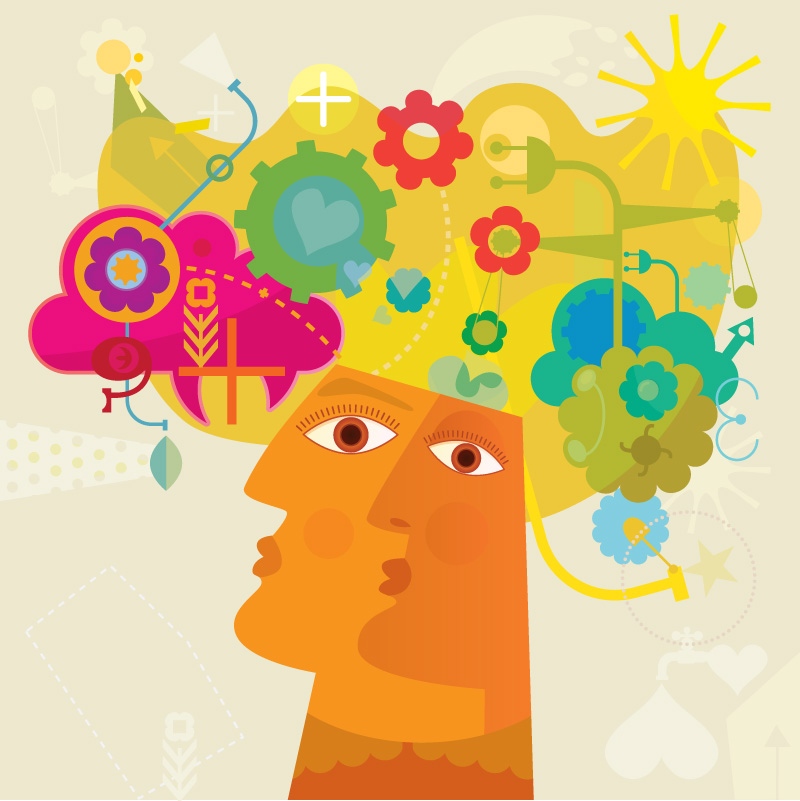
My article in last month’s issue suggested we could all benefit from learning to “own” our reactions. I pointed out that while reactions are automatic, and so aren’t immediately controllable (at least the thinking and feeling part of our reactions), they’re still happening inside us. They’re still determined by our own internal programming. So blaming them on the person or situation that may have triggered them isn’t usually very helpful. Much more helpful is to “own” them. In other words recognise they’re all about us.
When we own our reactions, they usually immediately diminish. We can then look at the “trigger” more objectively.
If the “trigger” is another person, we can recognise for example that they’re probably doing their best with the awareness they have right now (see my earlier article entitled “A Determined World”). Or we can recognise that from their perspective they think they’re justified (my earlier article suggesting that when we’re in conflict it pays to try to see things from the other person’s perspective).
If the “trigger” is a situation, we can recognise that the situation “is what it is” right now and wishing it was different right now is wishing for the impossible (my earlier article on “Accepting What Is”). Or we can recognise that everyone who contributed to creating the situation was probable doing their best, given their awareness at the time, so the situation could hardly have been different (my earlier article entitled “A Determined World”).
Once we’ve practiced “owning our reactions”, we can extend the principle to “owning our entire experience”. After all it’s not just our reactions that are happening inside us. The way we experience anything is determined by the way we think about people and situations. Our reactions are automatic and are determined primarily by our unconscious programming. Our experience is determined by a mixture of our automatic ways of thinking and our conscious “reasoned” ways of thinking.
“Owning” our experience is about recognising this. We can begin by reflecting it in our language. If we’re having a negative thought, we can add some words on the front of the thought such as “I’m unhappy that…” or “I’m irritated because…” That doesn’t immediately change our experience but it recognises that our experience is determined by the way we think.
We can then begin to take control of the way we experience situations. Many of the tools I’ve discussed in earlier articles can dramatically change the way we think and so the way we experience our lives. For example:
- Developing the ability to “accept what is” all the time, recognises that practically all negative thoughts involve wishing something were “already” different, which is wishing for the impossible. Developing a habit of noticing when we’re “resisting what is” (ie having a negative thought about the past or present), dropping those thoughts and refocusing on how to improve the future is a powerful way of thinking that develops exceptional resilience in our lives.
- Understanding that we live in a “determined world” is a useful supplement to “accepting what is”. This involves understanding that we and others have always done our best (the only thing we could have done) given our awareness at the time, but that we’re still responsible for our actions.
- Learning to “accept any uncomfortable feelings” is an effective way of taking control of our feelings and emotions, whereas “resisting” uncomfortable feelings always makes them worse.
- “Accept the feeling, choose the (opposite) action” is a powerful tool for unwinding recurring feelings that drive unproductive behaviour (such as anxiety speaking to groups, addictions, overeating, phobias, procrastination, low self-esteem or lack of confidence).
- “Owning our reactions”, as I mentioned at the beginning of this article, combined with “accept the feeling, choose the action” is a tool for unwinding unproductive reactions.
The idea of owning our experience, and then taking control of the way we experience life, is hardly new. William Shakespeare was heading in this direction when in Hamlet Act 4 he said… “There’s nothing good or bad, only thinking makes it so”. He understood the principle of “owning our experience”, even if he didn’t have all the tools we have today for taking control of the way we experience our lives.













